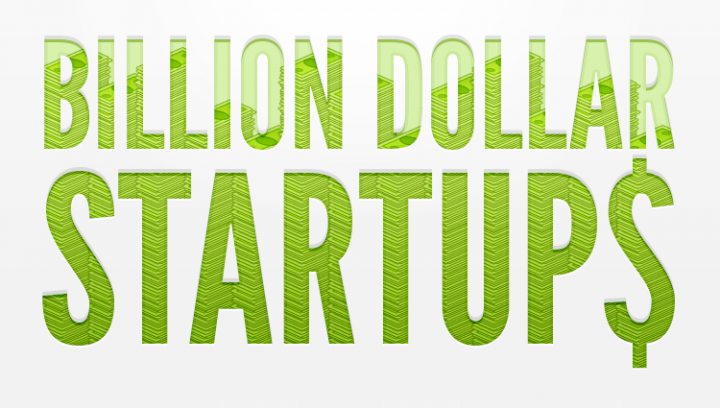Why Aren’t Many Going For the Billion-Dollar Ideas in Singapore
John Fearon is a lifelong serial entrepreneur. His 35 years have taken him from selling sweets as a child, to global digital marketing, to founding Dropmysite.com, one of the fastest growing cloud companies today.

Credit: staff.com
Singapore is starting to look like the Silicon Valley of Asia – startups popping up everywhere, chock full of wealth being invested, and now they’re even drawing talent from MNCs around the world. However, one big difference is that on Sand Hill Road, everyone is looking to be a billion-dollar business but it seems only a few in the Lion City are.
You need a ton of capital and sufficient length of time to go after the billion-dollar idea. Next, you need a world-changing idea, like indexing the entire internet in a search engine i.e. Google. Sometimes there just isn’t adequate cash or time or ideas on Singapore’s shores to propel a business into orbit.
Money and time not enough
True billion-dollar companies take time to mature and plenty of cash injections to keep it fresh. At Facebook’s five-year mark, it was actually making $56 million in losses. What kind of Singapore startup or business can survive with that kind of P&L all the way to year five?
Of course at that point in time, with Facebook sitting on a mountain of venture capital (approximately $500 million and growing), they weren’t really worried. In Singapore, it is highly doubtful that there would be this kind of money to sustain a startup for that long. While there are plenty of venture capitalists, hedge funds, angel investors and government grants around, they stop short at the seed round.
The series A crunch is a worldwide phenomenon and its effects are definitely felt here. After raising up to the usual $1 million of seed money, local startups are left to fend for themselves. Their business model will have to yield revenues soon, and more importantly profits, or they’ll starve to death.
While it is true in business that only the fittest should survive, some things just cannot be rushed. Being too focused on making cash straight off the bat or only having business models that deliver quick success will limit a company’s vision and potential.
Ideas not big enough?
As the ecosystem is unfavorable for business models that need to mature before delivering rewards, many startups tend to go for e-commerce. E-commerce is a cash business; it’s easier to see how it will make money and where its exits are. Investors (institutional or individual) reinforce this mindset by favoring them. While there is nothing wrong with an e-commerce business, how many of them locally do you bet on to last long enough and be big enough to get to a billion dollar valuation?
That being said, Singapore-based PropertyGuru and Reebonz have done very well in recent times - both raising multi-million dollar rounds. They could become the first local startups to be valued at a billion dollars. These two businesses got to where they are by taking it slow and steady. Both focused on local markets and expanding beyond once they have built solid businesses.
Contrast the process taken by the Valley where people just move bigger and faster. Almost only going after the big, hairy goals, they aim to change the world. Even fledgling startups begin their valuations at $10 million, regardless of what stage they are at. For them, their ideas aim for 10-digit valuations or nothing at all.
What to do?
To achieve the pinnacle of startup success, Singapore startups have to learn from their SV counterparts to aim to go after the audacious: change the world. The idea of the business would have to be on a global scale. Following that, the execution will have to be acted upon locally. One way to enable this plan is to build with scalable technology and take MVP (minimum viable product) to shake up the globe. Next, utilize cloud services to make it easy to move across borders.
Following that, though there is no imminent cure for the Series A crunch. Playing a waiting game for investor confidence to return will be a foolish one in these uncertain times. Take it one step at a time and grow the business by pacing yourself. Launch fast, reach the $10 million valuation, continue building the product to take it to $100 million and repeat till it’s $1 billion.
An alternative to the cash crunch is that if there is no capital in the market, perhaps the only way to do things right is to do it yourself. Sell your cash-cow startup at the right time to take a punt on your truly amazing idea in the future.
Elon Musk took his millions of payout from Paypal (on which he could retire multiple times) and took a wild risk. Musk is now negotiating space travel with SpaceX, revolutionizing automobiles (Tesla), upsetting long-distance travel (Hyperloop) and more. If any of these bets pay out, you can be sure that when he cashes out, he will just create more crazy companies.
Just because it is hard for your business to be worth a billion dollars in Singapore doesn’t mean you shouldn’t do it. Prove the market wrong and be the first Singaporean company to make it into the billionaire boys club.
The post Why Aren’t Many Going For the Billion-Dollar Ideas in Singapore appeared first on Tech in Asia.

 Yahoo Finance
Yahoo Finance 
